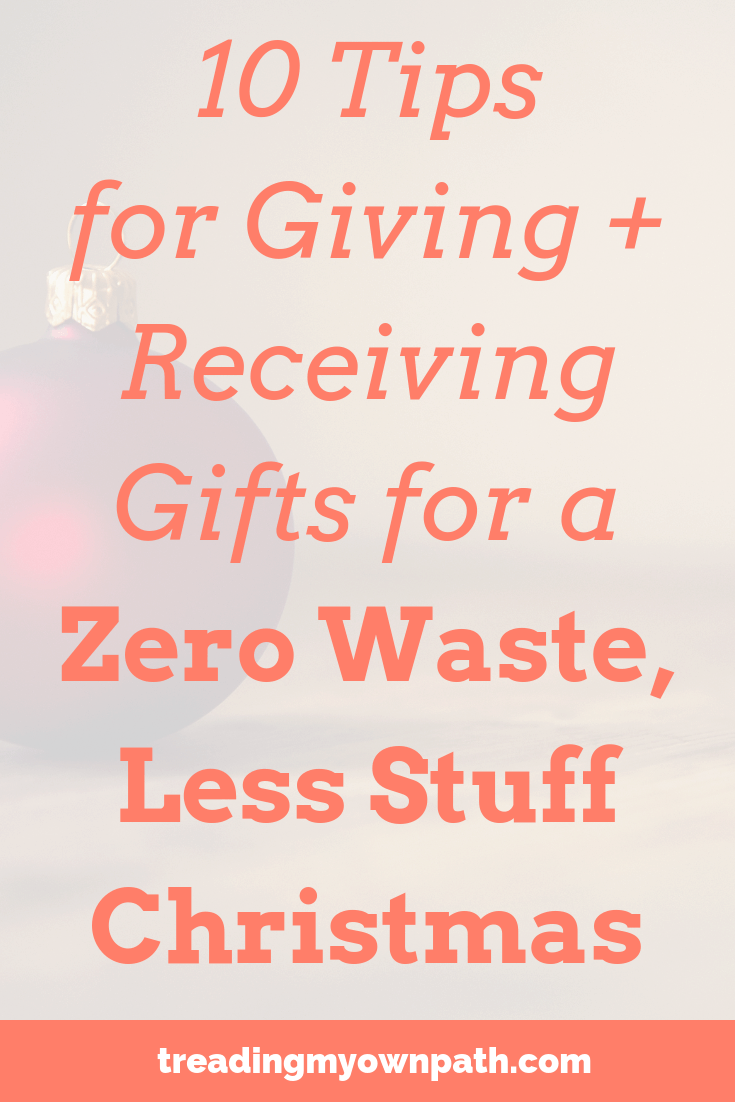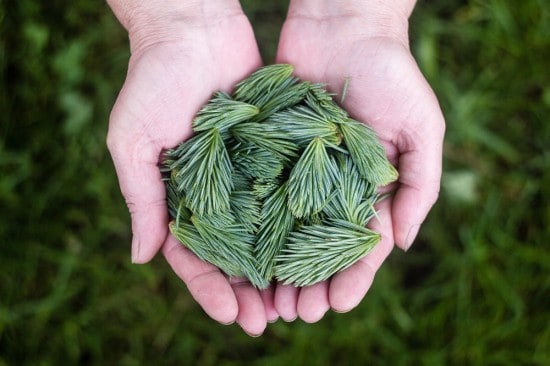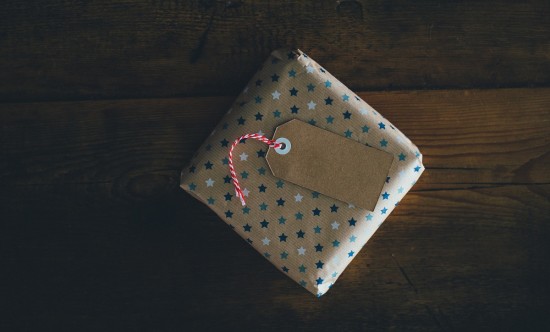A Zero Waste Guide to Christmas Gifts
I am not a Christmas grinch. I love the idea of families and friends coming together at Christmas, taking time out to share experiences, eating good food and hopefully playing some board games ;)
But presents? Oh, I’m not a fan of Christmas presents at all.
I’m passionate about living a zero waste lifestyle. I aspire to own less, not more. And Christmas presents are, quite frankly, the opposite of that.
It’s not that I dislike presents. A well thought-out gift, that I truly need and love and will actually use, is great. The truth is though, that I already have everything that I need, in terms of stuff. If I did need something, why wait for it to be given to me as a gift, if I can go out and choose it myself? That way, I get to choose the exact one that I want, from the store I want to support. There is less room for error.
If I don’t know that I need it… well then, maybe I don’t need it at all.

I particularly find Christmas present-buying so… transactional. Everyone buys everything for everyone else: it’s a big consumer-fest of stuff, most of which isn’t really wanted or needed. To tell someone exactly what you want, and then spend the exact same amount of money on a gift that they asked you to buy in return, seems pointless to me.
The idea that people tell one another what to buy isn’t meaningful, or a way of expressing love, in my mind. Now someone agreeing to spend two hours playing board games with me, even though I know they’d rather not… now that’s love ;)
Of course, I’ve been there. I’ve written lists of things I wanted, and looked at other people’s lists to choose things to buy. I’ve tried to think of things that might be useful to give to others, and I’ve received things myself that were intended to be useful. As we get older, and have more and more stuff, it gets harder, and it all just seems more and more unnecessary.
On the other hand, I understand traditions and customs. I also understand that some people like to show their love through giving gifts. People don’t want to upset their families. And trying to explain to a 6 year-old that they aren’t getting a Christmas gift from you as you’re making a stand against rampant consumption might not go down too well!
So, I’m not proposing that we cancel Christmas.
Instead, I want to help anyone aspiring to a zero waste or minimalist lifestyle to navigate the Christmas present minefield without accumulating a bunch of stuff they don’t want or don’t need, upsetting all the relatives and feeling that they’ve abandoned their values.

If you’re someone who loves Christmas, and gift-giving (or gift-receiving!), then it is not my place to try to persuade you otherwise. Enjoy the festivities! This is for anyone who feels a looming sense of dread as the holiday season approaches, and wants some hints and ideas to do things a little differently.
A Zero Waste (and Minimalist) Guide to Gift Giving (and Receiving)

Part 1: Gift Receiving
1. Try NOT to ask for “Stuff”
If you’re passionate about living life with less stuff or less waste, then think really carefully before you ask for “stuff” for Christmas. It can be tempting, especially if you’re just starting out on the journey and actually need things.
But ultimately, to live this lifestyle you need to step out of the “stuff” game, and the sooner you start, the better. It will take time for friends, relatives and family members to understand that you actually don’t want stuff any more, and asking for “zero waste” stuff confuses the message.
2. Asking for “nothing at all” can be confronting for others.
I would never have believed this if we hadn’t requested that our families not get us anything at all for Christmas one year. Nothing at all, no money, no gifts, no vouchers, nothing. We even left the country for a month over the holiday period.
It worked. We didn’t receive anything. But afterwards, we found out that my mother-in-law had really struggled with it. Not acknowledging her son in some way at Christmas felt really wrong for her, and she was troubled by it. She did it, but found it very hard. I’m not sure she’d have managed it a second year.
It did help break the cycle of “stuff” though, and helped us find a compromise the following year that everyone was happier with.
It might work for you, and it is definitely worth trying if you’re happy with that option. But remember that some people show their love by giving gifts, and you don’t want to be happy at someone else’s expense.
3. Set some rules that keep everyone happy.
If you know that your family and friends like to give gifts, and suspect they will find a no-gift policy confronting, try to choose some rules that will satisfy their need to give gifts whilst keeping the unnecessary stuff to a minimum.
Ideas include:
- Make a rule that all gifts should be second-hand.
- Specify that all gifts should be homemade.
- Put limits on the types of new goods (eg books, tools, plants, or whatever you think would work).
- Suggest DIY hampers (food, beauty products or something else) – but be clear about limiting excess packaging!
- Ask for only edible goods or drinks (although remember at Christmas the shops are full of novelty, overpackaged, palm oil-filled gifts).
- Suggest a Secret Santa where rather than all adults buying gifts for everyone, all names are put into a hat and everyone buys one gift only for the person they picked out of the hat.
- Ask for experiences, tickets for shows, workshops or events; even vouchers for restaurants or cafes. Avoid vouchers for shops as these will lead to “stuff”.
4. You need to communicate!
Stepping out of the consumer-fest of Christmas can be difficult, and if you want to make it easier for yourself and everyone around you, it’s better to tell everyone how you’d like things to be, and as soon as you can! There is no point having rules if you haven’t communicated them!
Be clear on your expectations. Don’t leave any room for ambiguity. If you find it hard to tell people in person, send a letter or email.
Just don’t assume that people will realise that your new way of living means you don’t want “stuff” – they likely won’t.
5. Don’t expect the first year to be easy.
It doesn’t matter how clear you think you’ve been, or how many times you’ve explained it, there will likely be mis-steps along the way. You’re on a journey, but everyone else is doing the same thing they’ve always done, and they might not see a reason to change. Or they might think it’s just a phase you’re going through. Or that the rules don’t apply at Christmas.
Rest assured, every year it will get easier, as others understand that it isn’t a phase, and also adjust to the new way of thinking.
The first year that we went plastic-free, we received a number of Christmas presents packaged in plastic. We even received a novelty plastic item packaged in plastic. Everyone knew that we lived plastic-free, and yet somehow it didn’t occur to them that this also applied at Christmas. It took time for the new way of life to sink in.
Now, they wouldn’t dream of it!
6. Don’t hold onto anything out of guilt.
If you get stuff that you don’t need and didn’t ask for, there is no need to keep it out of guilt. Someone choosing to give a gift (out of social pressure, convention, or their own personal need to express their love and appreciation this way) does not mean that you need to choose to keep it.
The meaning is in the gift-giving, not the gift itself. They made that choice, not you.
Donate it, sell it, give it away. Don’t dwell on it. There will be someone out there who will really want what you have, and will use it. If you can connect your unwanted stuff with them, then that’s a far better use of the item than languishing in your cupboard, making you feel guilty every time you see it.
There’s no need to tell the gift-giver, if you don’t want to (although if you do, it will help with not receiving anything next time!). Chances are they won’t remember anyway.
Part 2: Gift Giving

7. Don’t push your values on others.
Deciding to purchase a zero waste kit for your family because you really think they should go zero waste, or buying them a collection of books about decluttering because you think they have too much stuff isn’t actually that different from them buying you a bunch of junk that you didn’t ask for.
You might think it’s useful, but if they won’t use it (and will possibly be insulted in the process!) then it’s just as much a waste.
Similarly, donating money on their behalf to a charity might seem like a great way to avoid present-buying, but if they are expecting a well-wrapped gift from the high street, they won’t thank you for it.
In the same way that you don’t want them to push their expectations on you, don’t push yours onto them.
8. Listen to what they say.
You’d hope friends and family would listen to your requests, and you need to listen to theirs. If they’ve been specific about what they would like (no handmade gifts, no second hand stuff) then you need to honour that.
That doesn’t mean that you need to buy them a bunch of overpackaged stuff. You just need figure the best way to work around what they want without betraying your own values! ;)
9. If in doubt, ask.
If someone has been very specific with their list, but you’re not keen to buy anything on it, come up with your own ideas and ask them what they think.
How do they feel about tickets to the cinema or a show? A voucher for a restaurant? A one-night stay at a local B n B?
What about a day together at a National Park? A picnic or a seaside outing?
Could you offer some kind of services – mowing the lawn, babysitting, cooking dinners for a week?
Is hosting Christmas dinner an option instead of gifts?
10. Can you cancel gifts altogether?
It’s possible that you’re overthinking this, and that actually it’s possible to come to the mutual agreement of not buying anything. As much as people love to receive gifts, many people hate to go Christmas shopping. They might be relieved to know that they don’t have to brave the busy, crowded shops in a desperate attempt to find something you probably won’t like anyway.
Christmas is an expensive time of year, and they might actually appreciate having one less gift to buy.
Don’t rule it out.
…
How we personally deal with Christmas has evolved over time. It’s still not perfect, but we’ve slowly come to a mutual understanding amongst our family and friends. From the first year, when we asked for stuff; to the second year, when we boycotted the whole thing; to the third year, when we even bought some “stuff” for others, we seem to have reached a balance. We no longer buy presents for most of the adults (with mutual agreement), and for those that we do, it’s limited to experiences. For our niece and nephew, we focus on experiences too – things that we can do together. It works for us.
Now I’d love to hear from you! What are your experiences of Christmas? Is this your first year of living a plastic-free, zero waste or minimalist lifestyle? What are your concerns? Have you had any conversations with family yet and how did they go? Have you been living this way for several years? If so, have you found balance that works for you? How have your choices changed over time? Do you have any tips to add? Any stories or experiences to share? Questions to ask? Anything else you’d like to comment on? Please tell me your thoughts in the comments below!
[leadpages_leadbox leadbox_id=1429a0746639c5] [/leadpages_leadbox]




